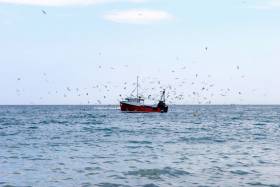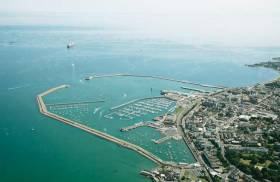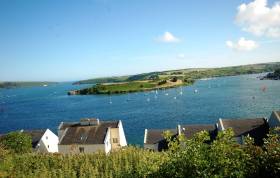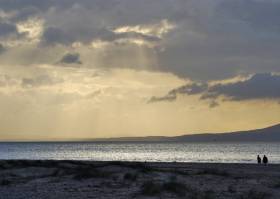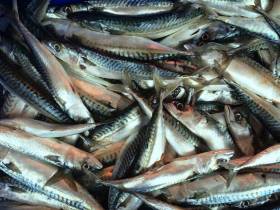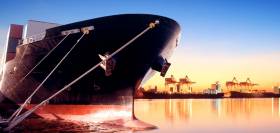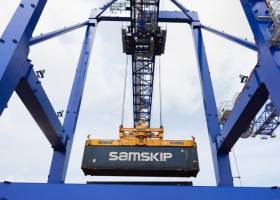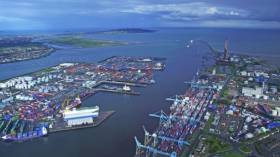Displaying items by tag: Brexit
UK Fishing Fleets Urged To Prepare For Catch Certificates In Event Of No-Deal Brexit
#Fishing - The UK’s fishing industry has been advised to prepare for the introduction of EU catch certificates in the event of a no-deal Brexit.
As Prime Minister Teresa May’s key Commons vote on her proposed Withdrawal Agreement looms tomorrow (Tuesday 15 January), fishing fleets around Great Britain and Northern Ireland have been reminded that in the event of a no-deal, most fish or fish products would require a catch certificate for trade with the EU from 29 March.
Catch certificates prove that fish has been caught in line with established conservation and management measures. All non-EU countries are required to present catch certificates when trading with the EU.
The UK Government says a new IT system to process and issue export catch certificates, and other supporting documentation, is being developed to help streamline the process.
Exporters would receive full instructions on how to register and use the new system before the UK leaves the EU. Import catch certificates would continue to be processed through the current paper-based system.
In addition to documents required under IUU regulations, businesses will also need to follow additional steps to comply with health and customs regulations in the event of a no-deal.
To plan ahead for creating a catch certificate, businesses and individuals that export fish products to the EU will need to know the species, vessel that caught it, date it was landed, and weight of the consignment.
Could Brexit present an opportunity for Dun Laoghaire’s harbour?
In a letter to The Irish Times last Tuesday 8 January, local Fine Gael councillor John Kennedy spells out his reasons why the port could be positioned as an additional resource to help deal with the pressures of an expected increase in sea trade.
Cllr Kennedy suggests that funding could be sought for the South Dublin port via the European Commission’s trans-European transport network (TEN-T) strategy for the realigning of trade connections with mainland Europe.
“It makes sense for a combination of European and exchequer funding to be allocated to reactivate the potential of Dún Laoghaire port for international trade ahead of the critical post-Brexit juncture,” Cllr Kennedy writes.
Cllr Kennedy’s letter comes not long after talk of reviving ambitions for a National Watersport Centre in Dun Laoghaire, as previously reported on Afloat.ie.
How High Does the Marine Leisure Sector Rate in Brexit Preparations?
Hello and welcome to my weekly Podcast …. Tom MacSweeney here ….
The reality of Ireland as an island nation is becoming more publicly apparent with each passing day as the possibility of a ‘no deal’ Brexit looms closer.
Our closest island neighbour will no longer be an easy communication route for people, transport, our exports and imports, but maybe a physical barrier to Europe.
While the Border with Northern Ireland has been the focus of concentration the Government’s ‘contingency plan’ – its plans to buy land around the ports to facilitate transport; the warning by Tanaiste Simon Coveney, who knows a lot about maritime affairs, warning of the ‘severe impact’ on the Irish economy; all coming this week lend emphasis to our island situation and highlight the importance of Government recognition of the marine sphere as a vital economic component… 95 per cent of all Irish exports and imports travel by sea…. That reality is now hitting home.
The ports, shipping and the fishing industry – with just 30 nautical miles from the East Coast to the British fishing zone – have been discussed, but what about the leisure marine sector and marine tourism?
What are the implications for cruising voyages to the British coast, to Northern Ireland and from Britain to Ireland? What about yachts competing in UK events…. What about offshore racing across the Irish Sea? What about events such as the big regattas in Dun Laoghaire, Cork Week, the Round Ireland Race and other events, for the situation of British non-EU boats taking part in Irish events? And of Irish/EU boats competing in British waters?
What will be the situation for inspections, Customs, transiting, etc? What about trailing boats across to Britain…. All maritime sports will surely be faced with some effect as Britain pulls out of the EU…. Has enough preparation been made for these scenarios….???
The new Chairman of the Irish Marine Federation, Paal Janson, said this week that barriers to investment around the Irish coastline have stymied growth in the marine sphere for too long.
Will Brexit create more barriers?
So far I haven’t been able to get satisfactory answers from State sources to the question of how high does the leisure marine sector rate in the Brexit preparations?
Listen to the podcast below
British Government Accused Of ‘Coasting’ On Post-Brexit Fisheries Plans For Northern Ireland
#Fishing - The UK Government has been accused of “coasting” on plans for Britain’s and in particular Northern Ireland’s fisheries post-Brexit, as the News Letter reports.
MPs on the Northern Ireland Affairs Select Committee have written to fisheries secretary Michael Gove for solutions to “the crushing shortage of labour, illegal oyster farming in Lough Foyle and Ireland’s continued suspension of fishing rights under the Voisinage Arrangement.”
The Voisinage Arrangement has existed since the mid 1960s and allowed for mutual access to vessels from the Republic and Northern Ireland up to six miles off the coast of each country.
But the arrangements was suspended in the Republic in 2016 after the Supreme Court ruled that it had not been properly incorporated into Irish law.
The committee have also demanded immediate “timescales” to resolve territorial claims on Lough Foyle, which have not been a practical issue since both countries have been EU member states.
The News Letter has more on the story HERE.
Welsh Port Town of Holyhead on Brexit: ‘When Will People Wake the F**K Up?’
#Ferry- In the Welsh port town of Holyhead, The Irish Times reports, even Santa voted to leave the European Union. Santa’s other name is Richard Burnell. He’s 78 with a long white beard and he formerly worked in local government. This Christmas he will dress in a red suit and give presents to children on the Stena Line ferry.
“I think the idea of the EC [European Community] common market was fine,” says Santa. “But when it got to the stage that they wanted to rule the country, to govern us, I think this is what the people of Britain have kicked up against. We’ve got our own laws which go back hundreds of years.”
‘We were misled. I would change my mind now’
Burnell’s friend Beryl Warner also voted Leave. “In my opinion we were misled,” she says. “I’ve been doing voluntary work all my life, especially in the hospitals … We were told we would have £30 million more for the NHS, and that’s what really prompted me to say leave. I would change my mind now.”
Burnell is more optimistic. “There was a big fishing community in Holyhead, ” he says. “When the EC was formed, it vanished. And when we do get back to Britain we will have our trawling waters back … It’s going to be a challenge, no doubt about it, but it’s a big world out there. We can trade with the rest of the world.”
Do people discuss Brexit? “No,” says Warner. “No. I think that we didn’t know enough about it. We didn’t understand what was happening. Well, I for one didn’t ... Did you get the gist of it all?”
“No,” says Burnell. “There were so many different stories going around, you just had to pick the best bit out of all the stories and hope for the best really.”
Would he still vote the same way? He would, he says. “When you see what’s happening in Europe now, all the immigration and what have you.”
But Santa knows no borders, right? He laughs. “No borders at all. Those reindeers fly under the radar.”
I didn’t want to bring it up, but if there’s a no-deal Brexit next year, Santa and his reindeer will be subject to customs checks along with everyone else. The fear for Welsh politicians – Leavers and Remainers alike – is that, faced with such checks, Holyhead will be swamped by unsustainable traffic jams.
This would lead, they fear, to Irish hauliers going via Northern Ireland to Scotland or from Dublin to ports with larger hinterlands such as Liverpool, or, at worst, bypassing the UK “land bridge” entirely to ship directly to Europe. Holyhead is the second-busiest roll-on, roll-off ferry port in the UK.
About two million passengers, 423,000 lorries and 500,000 tons of cargo pass through each year.
For further comments from local Plaid Cymru councillor, Holyhead Business Forum and calls to bring back duty-free on crossings from Ireland (see related cruise-service bid) and much more, click here.
#Fishing - Marine Minister Michael Creed held a key bilateral meetings on the margins of the Agriculture and Fisheries Council in Luxembourg this week with his Danish and Spanish counterparts to discuss Brexit and fisheries priorities.
Minister Creed met the Danish minister for fisheries Eva Kjer Hansen on Brexit, with both ministers agreeing to continue to work together over the upcoming critical period to deliver on the EU guidelines for a future relationship in respect of fisheries.
Minister Creed also held a bilateral with the Spanish Minister for Agriculture, Fisheries and Food Luis Planas Puchades to discuss development of CAP strategic plans, as well as key concerns with regard to Brexit.
“I welcome the understanding that both Ministers demonstrated in our discussions today with regard to Brexit and its impact on both the Irish agri-food and fisheries sectors,” said Minister Creed yesterday (Monday 15 October).
“There is a strong appreciation of the Irish concerns in the context of Brexit negotiations and I very much welcome the ongoing support provided by my Danish and Spanish colleagues in this regard.”
Ministers Creed and Planas also reviewed challenging issues facing both member states in advance of the full introduction of the discards ban on 1 January next and setting quotas at the December fisheries council that supports the practical delivery of this new policy.
Minister Creed addressed the setting of the mackerel total allowable catch (TAC) and quotas for 2019 in a situation where the scientific advice advocates a 61% cut from 2018.
Minister Creed said: “We need to take full account of the concerns from the scientists themselves about this year’s advice and take account of the socio-economic importance of the mackerel fishery when deciding on a TAC for 2019.
“We must work closely at an EU level with Norway and the Faroe Islands, our partners in the management agreement, to reach a balanced outcome that avoids undue inter-annual fluctuation in the management of the stock.”
Brussels Issues Brexit Preparedness Notice On Maritime Security
#Brexit - The latest notice from the European Commission to stakeholders on Brexit preparedness concerns the field of aviation and maritime security.
Subject to any transitional arrangement that may be contained in a possible withdrawal agreement, as of the withdrawal date, the EU rules in the field of aviation security and maritime security will no longer apply to the United Kingdom.
In the maritime context, this will have consequences with regard to mandatory security information for passenger ferry services in the EU, from which the UK is exempt as a member state, and security inspections of vessels which the UK will no longer be able to carry out.
To date the Department of Transport, Tourism and Sport has published five Brexit preparedness notices relevant to maritime transport.
Full details of preparedness advice for maritime security are included in Marine Notice No 37 of 2018, a PDF of which is available to read or download HERE.
Major UK Ports Operator Aims for Frictionless Trade With 'Blockchain' Technology
#BrexitBlockchain - A leading UK port operator, Associated British Ports (ABP) has signed a Memorandum of Understanding (MOU) to work with digital logistics enabler Marine Transport International (MTI). This is to create one of Europe’s first detailed pilot programmes to examine the implementation of blockchain technology to improve port connectivity.
ABP operates 21 ports across the UK, Afloat adds among them Hull using Irish-built container cranes. Collectively these ports handling 25% of the country’s seaborne cargo. As such, it connects with a huge number of businesses involved in the logistics industry. Being able to transfer all types of cargo quickly and smoothly through its ports is critical.
“We handle almost 100 million tonnes of cargo across all sectors every year so we are a significant gateway for our customers’ supply chains,” said Jens Skibsted Nielsen, Commercial Director at ABP. “This MOU with MTI is a demonstration of our commitment to technical innovation and finding new ways to improve the UK’s supply chains.”
Ron Crean, Group Head of Marketing for ABP and leader of this project, commented, “Our aim is to support our customers in achieving frictionless trade. Based on the results from our previous proof of concept project, we are now looking at ways to deploy enterprise-level solutions that can deliver trust, security and speed.”
As part of the agreement, ABP will commit to participating in MTI’s blockchain solution in pilot shipments. Currently, each party in a supply chain, from shipper to haulier and from port operator to carrier, uses different systems, which do not all talk to each other efficiently. MTI’s technology could offer a way to securely link these disparate ways of working and could bridge the silos to reduce time spent on manually re-entering data, ensuring a single version of the truth.
“Blockchain is the buzzword of the logistics industry at the moment,” said Jody Cleworth, founder and CEO of MTI. “Yet some of the projects making a big splash are blockchain in name only. Blockchain-enabled technology has the potential to provide a transparent, secure and accurate way of capturing and sharing data with key parties, but for MTI the critical part is interoperability – it has to be able to openly connect with existing systems. The logistics industry is awash with proprietary technology that forces users to work in a certain way – with blockchain, we can connect all those systems to ensure data is accurately and quickly shared, helping speed-up and simplify the flow of trade in and out of the UK.”
Irish Exports: Half Went to EU in July
#IrishPorts - The Irish Examiner writes that exports to EU countries rose 15% over the past year with more than half of Irish goods going to the Continent in July, official figures have shown, as calls grow for Irish ports to be funded post-Brexit.
CSO figures for July showed the continental EU accounted for €5.65bn, or 51%, of exports in July, of which €1.44bn went to Belgium and €725m went to Germany.
Exports to EU countries increased by €749m, or 15%, compared with July 2017, according to the CSO.
Imports from the EU were valued at €4.8bn, or 63%, of total imports in July 2018 — an increase of €1.43m, or 43%, over the same comparative period.
For further facts and figures click the story here.
Irish Ports Want Brexit Support From European Commission
#Brexit - An Irish ports industry body has called on the European Commission to shore up measures against the adverse impact of Brexit on marine passenger and freight transport between Ireland and the continent.
The commission is proposing to realign the TEN-T network’s North Sea Mediterranean Core Network Corridor, which currently links Ireland to France via the UK land bridge.
The EC proposal would amend the corridor to link Dublin Port and the Port of Cork directly with core ports in Belgium and the Netherlands.
While the Irish Ports Association (IPA) says it welcomes this approach, it also believes that “additional measures” are needed “because of the adverse impact of Brexit on Ireland’s peripherality”.
“It is vital for all three of Ireland’s core ports and at least one French port to be included in these new maritime links,” said IPA chair Des Whelan.
“Importantly also, existing routes between Ireland and France are between comprehensive ports in both countries, and it is important that the Commission finds a way to include these strategically important comprehensive ports in the North Sea Mediterranean Core Network Corridor, even if they don’t fit neatly into the TEN-T framework.”
Whelan added: “The challenges facing Ireland and northern France as a result of Brexit are unprecedented, and sea port connections for direct routes between Ireland and France are more important now than ever before.
“It would be also be beneficial for Ireland to be linked directly to the Atlantic Core Corridor. Ireland is one of three member states that have no road or rail links into the internal market and, instead, have to rely on sea transport.”
Whelan said the IPA also calls for the European Commission to “explore new ways of supporting Ireland’s smaller ports in their efforts to help them to adapt to Brexit”.



























